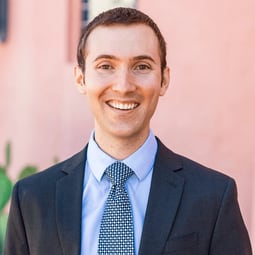
Michael Marty
Associate Professor, Department of Chemistry and Biochemistry, University of Arizona, USA
False

Associate Professor, Department of Chemistry and Biochemistry, University of Arizona, USA
Fears? My biggest fear is that we are not attracting enough talented students into analytical graduate programs. Traditional analytical chemistry or quantitative analysis courses tend to start with topics that most students find boring like error propagation or statistics. These are undoubtedly important, but they don’t draw students in. When I started teaching our undergraduate analytical chemistry course, I flipped the curriculum so that we start with the analytical methods to solve key problems and then cover the statistics once they have some context for why they are important. So far, I think it gets the students more excited about analytical sciences as a discipline. As a field, we need to do more to encourage undergraduates to pursue careers and graduate degrees in analytical chemistry. Otherwise, we will find that there are not enough students to sustain vibrant graduate programs and not enough PhDs to meet the needs in industry and academics.
Secret to success? Excellent mentors. At every stage, I have been surrounded by people who believe in me more than I believe in myself. They encouraged me to take leaps that I did not think I was ready for. Also, I think I have been extremely lucky to be in the right place at the right time.
Advice? Learn to code. Start with a brief tutorial to learn the syntax. I recommend Python, but other languages are good too. Then, pick a problem that you want to try to solve with it. Start with something simple like integrating a peak. Then, just keep building on that foundation, focusing on things most useful for you rather than arbitrary exercises. Ask for help from colleagues, social media, and web searching. Computer programming skills will transform what you can do as an analytical scientist.
Receive the latest pathologist news, personalities, education, and career development – weekly to your inbox.

False
False
False